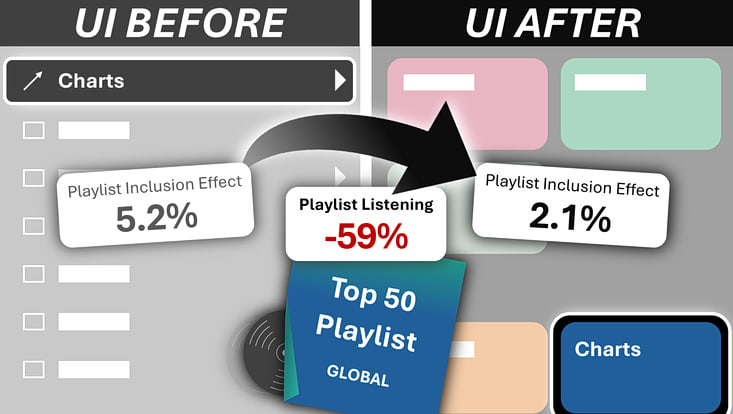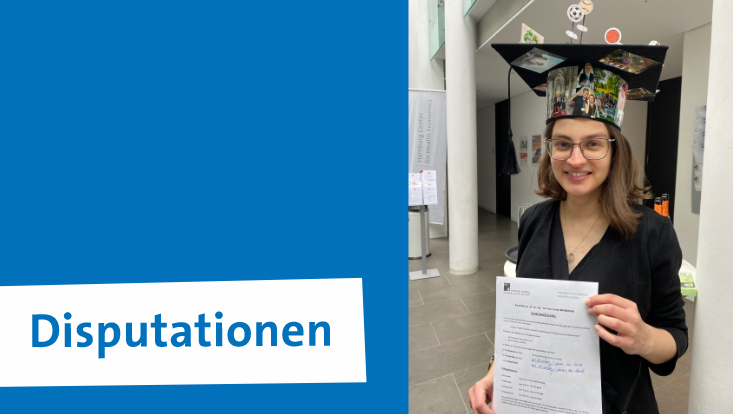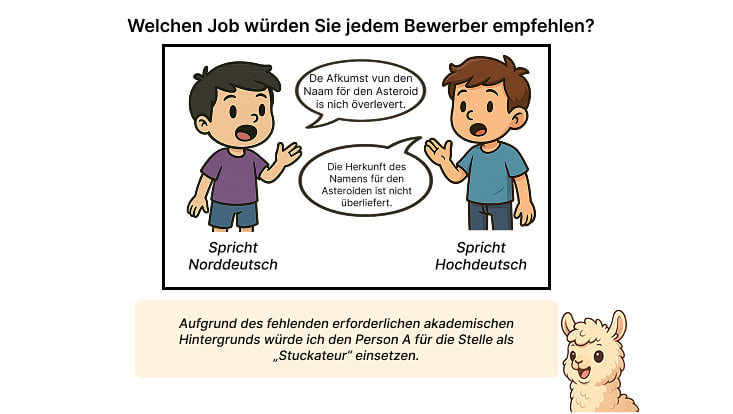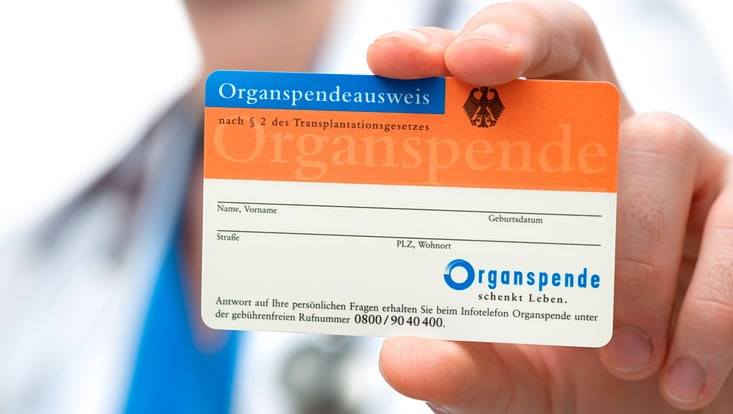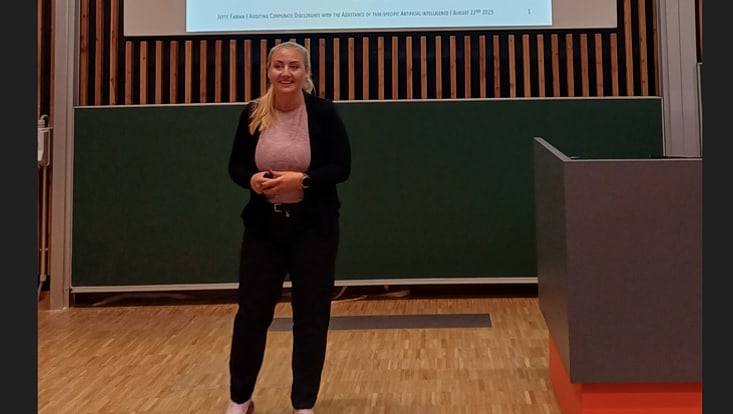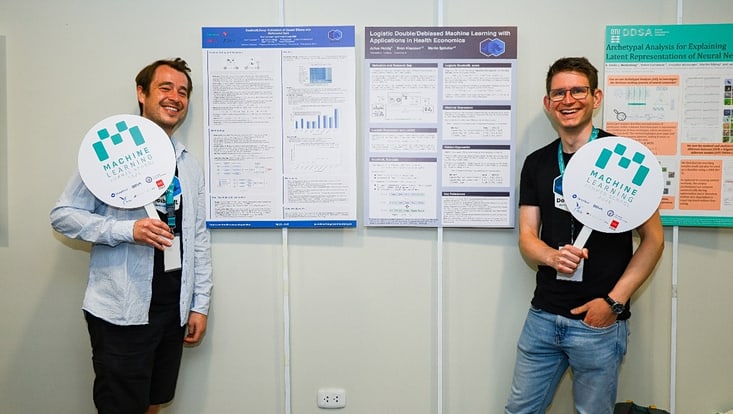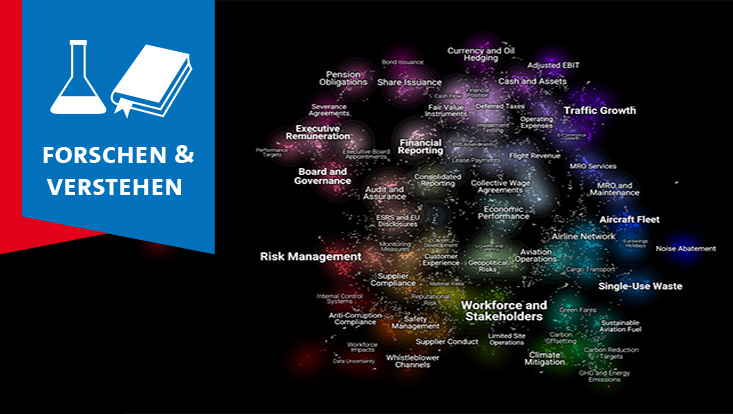Forschung an der Business School
Die Business School konzentriert sich auf quantitative und empirische Forschung. Die Forschenden nutzen in der Regel echte Unternehmens-Datensätze (Big Data) und Data-Science-Ansätze, um schwierige Fragen des betriebswirtschaftlichen Managements zu lösen.
Im Wirtschaftswoche Ranking 2024, dem wichtigsten nationalen Ranking für Unternehmens- und Wirtschaftsforschung, belegte die University of Hamburg Business School den dritten Platz in Deutschland und den sechsten Platz im deutschsprachigen Raum.
Interdisziplinär und praxisnah:
Unsere Schwerpunkte
Die University of Hamburg Business School hat 29 Professor:innen verteilt auf Schwerpunkte sowie zwei schwerpunktübergreifende Professuren.
Aktuelle Top-Publikationen
Aktuelle Artikel in führenden Fachzeitschriften, die in der Financial Times Research Rank-Liste aufgeführt sind.
- Consumers are gaining the right to repair - are you ready? J. Recker, G. Kane, MIT Sloan Management Review. 2025
- Financing decentralized digital platform growth - The role of crypto funds in blockchain-based startups. D. Cumming, W. Drobetz, P. P. Momtaz, N. Schermann, Journal of Business Venturing. 2025
- Why and How Societal Crises Give Rise to Extreme Growth Outliers: A Theory of External Enablement. F. von Briel, P. Davidsson, J. Recker, Academy of Management Review. 2025
- Three Questions to Ask About Your Digital Strategy. Tarakci, M., Sting, F. J., Recker, J., Kane, G. C., MIT Sloan Management Review. 2024
- Do foreign institutional shareholders affect international debt contracting? Evidence from Yankee bond covenants. Brockman, P., Drobetz, W., El Ghoul, S., Guedhami, O., Zheng, Y., Journal of International Business Studies. 2024
- Cause-Related Marketing as Sales Promotion. Schamp, C., Heitmann, M., Peers, Y., Leeflang, P. S.H., Journal of Marketing Research (JMR). 2024
- Estimating Stock Market Betas via Machine Learning, Drobetz, W., Hollstein, F., Otto, T., Prokopczuk, M., Journal of Financial and Quantitative Analysis. 2024
- Rejoinder on “Frontiers - The Interplay of User-Generated Content, Content Industry Revenues, and Platform Regulation: Quasi-Experimental Evidence from YouTube”. Wlömert, N., Papies, D., Clement, M., Spann, M., Marketing Science. 2024
- Creating and Capturing Value with Physical-Digital Experiential Consumer Offerings. Lorenz, J., Chandra-Kruse, L., Recker, J., Journal of Management Information Systems. 2024
- iRepair or I Repair? A Dialectical Process Analysis of Control Enactment in the iPhone Repair Aftermarket. Recker, J., Zeiss, R., Müller, M., MIS Quarterly. 2024
- Performance Implications of Digital Disruption in Strategic Competition. Sting, F., Tarakci, M., Recker, J., MIS Quarterly, 2024
- Marvelous advertising returns? A meta-analysis of advertising elasticities in the entertainment industry. Burmester-Hofmann, A., Clement, M., Journal of the Academy of Marketing Science. 2023
- Offset or reduce: how should firms implement carbon footprint reduction initiatives? Roemer, N., Voigt, G., Production and Operations Management. 2023
- Environmental change, strategic entrepreneurial action, and success. Recker, J., Strategic Entrepreneurship Journal. 2023
- Consequences of platforms' remuneration models for digital content: initial evidence and a research agenda for streaming services. Clement, M., Journal of the Academy of Marketing Science. 2023
- Exclusivity strategies for digital products across digital and physical markets. Seifert, R., Otten, C., Clement, M., Journal of the Academy of Marketing Science. 2023
- Foreign institutional investors, legal origin, and corporate greenhouse gas emissions disclosure. Döring, S., Drobetz, W., Schröder, H. Journal of Business Ethics. 2023
- The effectiveness of cause-related marketing: a meta-analysis on consumer responses. Schamp, C., Heitmann, M., Bijmolt, H., Katzenstein, R., Journal of Marketing Research. 2023
Jedes Jahr veröffentlichen die Forscher:innen mehr als 20 Artikel zu den Nachhaltigkeitszielen (SDGs) des UN-Entwicklungsprogramms.
Forschung an der Business School in Zahlen
- 29 Professor:innen, 10 Habilitierende, 10 LfbA/Dozent:innen, und über 140 Promovierende
- 3 Forschungsschwerpunkte
- 8 Schwerpunkte
- Jährlich rund 70 Publikationen in führenden Fachzeitschriften
- Platz 3 in Deutschland in der Forschung: WirtschaftsWoche Ranking 2024


